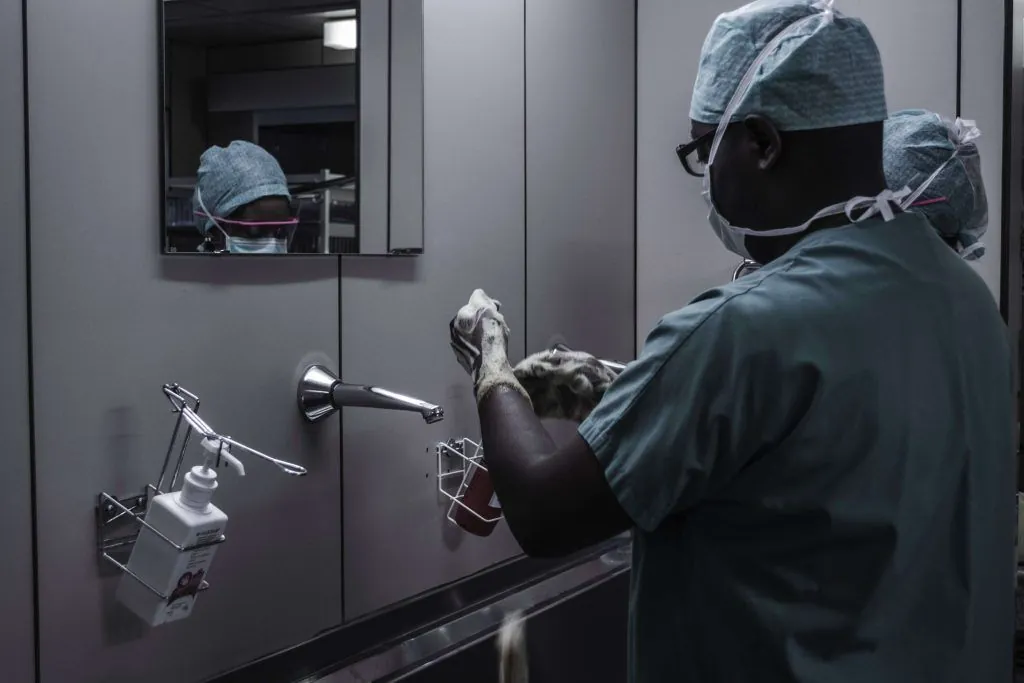Amputation Complications
I’m Ed Smith, a Sacramento personal injury lawyer. When someone is undergoing a surgical procedure, there are specific risks that they should be aware of before the day of the surgery. Some of the common concerns associated with a major operation include:
- Risk of severe infection, despite sterilizing procedures.
- Loss of blood, possibly requiring a blood transfusion.
- Having an allergic reaction to the anesthetic drugs.
- Possibility of an unsuccessful surgical procedure.
- Encountering a situation which requires additional emergency surgery during the original operation.
- Loss of teeth during the intubation process.
The more serious a surgical procedure is, the higher the risks that come along with it. An amputation injury is a major operation. Some of the reasons that people might need an amputation include:
- Traumatic injuries leading to a limb loss.
- Peripheral vascular disease due to complications of diabetes.
- An infection with a flesh-eating bacteria, causing gangrene.
Many complications could result from this operation. While amputation is already a challenging surgical procedure, these complications could make circumstances even worse. Some issues that people should watch for include:
- Edema or swelling of the amputation site.
- Delayed closure of surgical wounds, causing both aesthetic and medical issues.
- Pain at the amputation site, including phantom limb.
- Infection of the surgical site.
- Instability of joints, making mobility difficult.
- Significant loss of muscle strength.
It is essential to understand how these complications occur and what kind of treatments are available.
An Overview: Amputation Complications
When someone undergoes an amputation, several complications could develop as a result. Some of these include:
Edema: Edema is the medical term for swelling. This swelling develops as a traumatic response. For example, people who bump their head often notice a lump shortly afterward. This is edema. Amputation represents a significant trauma and swelling at the surgical site is expected. Unfortunately, edema at the stump is often uncomfortable. Side effects include pain, mobility problems, and even breakdown at the wound site which could result in an additional trip to the operating room. Swelling can also make it a challenge to fit a prosthetic properly.
Infection: As with any surgical procedure, there is always a risk of disease. Infection risks go up when the wound starts to break down. Studies have shown that infection can increase the healing time, increase the rate of phantom pain, and make it harder to fit a prosthetic. People are more likely to have an infection following surgery if:
- They have diabetes.
- They are over the age of 65.
- They have a history of smoking cigarettes.
These are all common comorbidities among people who are undergoing amputations. Studies have shown an infection rate of anywhere from 10 percent to 75 percent, making predictions difficult.
Pain: Pain is almost universal among people who have undergone an amputation. Pain varies widely from person to person. Some pain is excruciating while other people simply report weird sensations that may make them uncomfortable. Different types of pain that people may mention include:
- Post-surgical pain, which is generalized body pain associated with a major operation.
- Pain in the residual limb, which occurs in the stump that is left at the amputation site.
- Phantom limb pain, which is the sensation of pain in a limb that has already been removed.
This pain can be made worse by emotional stress, changes in weather, and even at a certain time of the day.
A Personal Injury Lawyer can Help
When someone sustains complications as a result of an amputation procedure, there are some common questions. These include:
- Who was at fault?
- Do I have to go back to surgery?
- Who will pay for this?
- What are my legal options?
- How will I cover my deductible?
- What if my health insurance company denies my claims?
These are natural emotions that are common not only for the individual but also for family members. In this situation, an amputation attorney in Sacramento can help. A lawyer has the experience to guide a family through a difficult situation.
Related Articles
Sacramento Personal Injury Lawyers
Hi, I’m Ed Smith, a Sacramento Personal Injury Lawyer. If you or your loved one suffered an amputation injury and needs help, please reach out to me by calling (800) 404-5400 or (916) 921-6400. I am happy to share friendly legal advice free of charge.
I belong the California section of trial lawyers in the Million Dollar Forum. Group members have each obtained client settlements or verdicts which exceeded 1 million dollars.
Please look at some of our verdicts or settlements.
You may want to look at Yelp, Avvo, and Google to read some of the reviews by our past clients.
Image Citation: The image at the start of this page was found originally on Unsplash. Reproduction of the image has occurred at this site with permission
:dr cha [cs 822] bw cv

